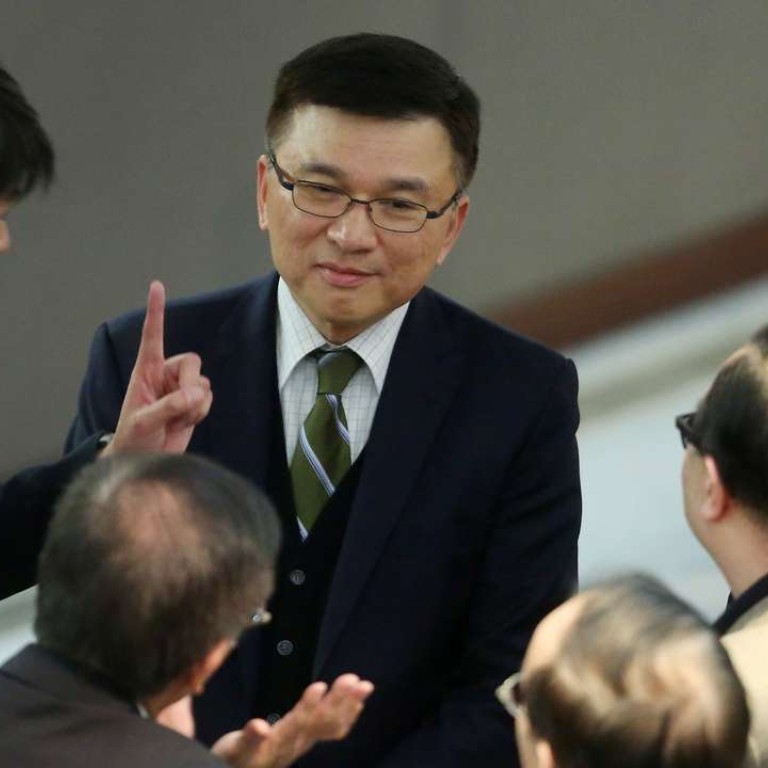
Financial Services chief Chan Ka-keung finds satisfaction in tackling real world problems
After serving the government for nine years, the academic-turned-minister Chan Ka-keung is most proud of pushing the internationalisation of yuan, which has become far more successful than he first imagined.
When Chan joined the government in 2007 July as Secretary for Financial Services and the Treasury, the then 50-year-old Hong Kong University of Science & Technology Professor was employed for the first time in his professional career outside the university.
The Hong Kong native received a PhD in 1985 from the University of Chicago, and since then studied and taught in the US for 18 years including nine years at Ohio State University. Back then there was no email or online news portals and he could only access Hong Kong news by reading a hardcopy edition of the South China Morning Post in a coffee shop every Saturday.
He returned to Hong Kong to take a teaching role at the Hong Kong University of Science and Technology in 1993, eventually becoming dean of business management before joining the government in 2007.
Nine years on, the 59-year old minister, who is married with two children, refused to say if he would retire or if he would like to continue to serve the next government. He however is willing to share his enjoyment of the job.
“After joining the government, I found that I really enjoy introducing reforms or new measures to improve our markets. That is different from teaching or doing research in the university,” he said.
Chan has helped to guide Hong Kong through the global financial crisis in 2008 and to help bring in tax measures to cool down the overheating property market in 2012.
He is also among the first in government to promote cross border equity trading.
During a 2007 interview with the SCMP he said: “Hong Kong investors might eventually be able to trade A shares. This could happen as the Hong Kong and mainland markets are getting more interactive with each other.”
Thanks to the efforts of Chan and other regulators, the concept became a reality in November 2014 with the launch of the Shanghai and Hong Kong Stock Connect. It enabled cross border trading between the Hong Kong and Shanghai stock markets under a quota. The Shenzhen Stock Exchange will be added to the scheme in the second half of this year.
But it was the internationalisation of yuan that he was most proud of.
“When I first joined the government in 2007, the internationalisation has not yet begun and there were no international users for the currency,” he said.
In mid 2009 China promoted Hong Kong as a hub for the international use of the yuan. Chan has had discussions with other mainland and Hong Kong officials on how to achieve a successful internationalisation of the currency.
The yuan now ranks among the top five settlement currencies and will join the International Monetary Fund Special Drawing Rights alongside with US dollar, euro, pound and yen as the reserve currency.
“It is very interesting to be involved in pushing for all these reform plans and to see the RMB reach such an international status. I would not be able to have had this involvement if I was still teaching in the university. For me, it was a great experience,” he said. “Even nowadays there are other markets also conducting yuan trading. It is most important for Hong Kong to be able to act as a hub to facilitate the international trade of the currency.”

